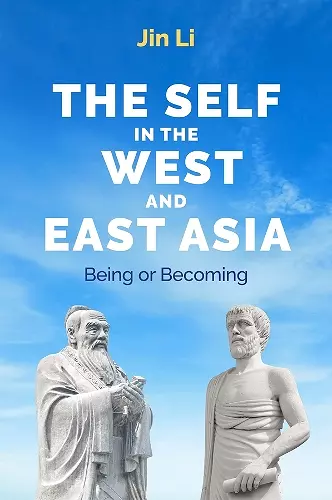The Self in the West and East Asia
Being or Becoming
Format:Hardback
Publisher:John Wiley and Sons Ltd
Published:13th Sep '24
Should be back in stock very soon

From the fraught world of geopolitics to business and the academy, it’s more vital than ever that Westerners and East Asians understand how each other thinks. As Jin Li shows in this groundbreaking work, the differences run deep. Li explores the philosophical origins of the concept of self in both cultures and synthesizes her findings with cutting-edge psychological research to reveal a fundamental contrast.
Westerners tend to think of the self as being, as a stable entity fixed in time and place. East Asians think of the self as relational and embedded in a process of becoming. The differences show in our intellectual traditions, our vocabulary, and our grammar. They are even apparent in our politics: the West is more interested in individual rights and East Asians in collective wellbeing. Deepening global exchanges may lead to some blurring and even integration of these cultural tendencies, but research suggests that the basic self-models, rooted in long-standing philosophies, are likely to endure.
The Self in the West and East Asia is an enriching and enlightening account of a crucial subject at a time when relations between East and West have moved center-stage in international affairs.
“Jin Li brings the entire academy in all its parts to her interrogation of how ‘self’ has been understood within the Western and East Asian cultural narratives. The argument she mounts for fundamental cultural differences is kaleidoscopic, looking at the phenomenon of self from a broad range of intradisciplinary perspectives. Capacious and compelling, her thesis is certainly informed by her own discipline of psychology, both the theoretical and the empirical, but also by history, philosophy, philology, classical studies, and, perhaps most importantly, by her own personal story.”
Roger T. Ames, Peking University
“Drawing deftly on a wide range of scholarly disciplines, as well as her youth in China during the Cultural Revolution, her study of Europe and work with European scholars, and her teaching and parenting in the United States, Jin Li details two dramatically different approaches to how life is conceptualized and experienced – and then suggests how they might be productively integrated.”
Howard Gardner, Harvard University
“What does it mean to be human and how do you do it? These are urgent, universal, and non-obvious questions. This important book is a fascinating comparison of the often sharply diverging answers to how to be a self, East and West. It is a highly accessible yet scholarly blend of philosophical accounts, personal experiences, and empirical research.”
Hazel Rose Markus, Stanford University and author of Clash! How to Thrive in a Multicultural World
“This book’s comparison of the ‘East Asian self’ with the ‘Western self’ features extensive cross-cultural knowledge of psychological theories and studies of how the self is conceived and functions. The presentation is clear, engaging, and rich in its details, as well as vivid in its recounting of the author’s illustrative personal experiences in Confucian and Western societies. Researchers in the field will benefit from this book, but, perhaps more importantly, it demonstrates that we all need to better understand one another in a world riven by misperception and antagonism.”
David Wong, Duke University
ISBN: 9781509561360
Dimensions: 231mm x 152mm x 38mm
Weight: 726g
320 pages